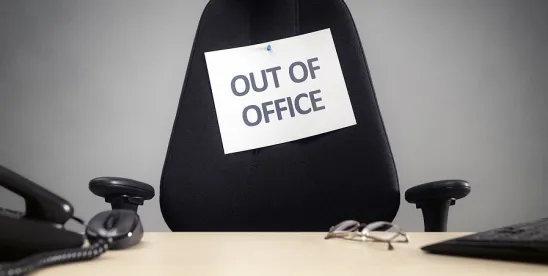Employers often place employees on paid administrative leave while they investigate accusations of employee misconduct or make decisions regarding the employees’ employment. Traditionally, most federal courts agreed that this practice, without more, did not constitute an “adverse employment action” under Title VII.[1] But some courts have recently recognized that paid administrative leave might, in some cases, give rise to liability. A catalyst for this shift appears to be the U.S. Supreme Court’s recent ruling in Muldrow v. City of St. Louis, Missouri.[2]
As we wrote earlier this year, Muldrow involved a police officer’s claim that the city subjected her to a discriminatory job transfer based on gender. The lower courts held that, because the transfer did not result in a diminution in the officer’s title, salary, or benefits, it did not cause a “material employment disadvantage” and was thus “insufficient” to support her Title VII discrimination claim.[3] But the U.S. Supreme Court disagreed and held that to establish a Title VII discrimination claim based on a job transfer, an employee does not have to show that the harm from the transfer is significant “[o]r serious, or substantial, or any similar adjective.”[4] Rather, the employee need only prove that the transfer left them “worse off.”
Although Muldrow was a case about an alleged discriminatory job transfer, several courts have recently relied on it to undercut long-held beliefs about paid suspensions. The U.S. Court of Appeals for the Sixth Circuit, for example, noted that Muldrow called into doubt the circuit’s precedent regarding suspension with pay because “one might reasonably argue that a temporary suspension (even with pay) causes ‘some harm.’”[5] Similarly, the Third Circuit noted that Muldrow “arguably abrogated” previous caselaw “so that a suspension with pay might, under some circumstances, constitute an adverse employment action.”[6] And the Fifth Circuit relied on Muldrow, in part, to support its conclusion that a plaintiff being placed on paid administrative leave constituted an adverse employment action for purposes of that appeal.[7]
In another case, the U.S. District Court for the District of Columbia recognized that Muldrow may have impacted previous holdings that suspension with pay does not constitute an adverse employment action.[8]
Several questions remain regarding Muldrow’s impact on paid suspensions in the context of employment discrimination claims. Does it matter whether the employee opposes the paid suspension? What type of harm must be shown from a paid suspension for it to qualify as an adverse employment action? Is a loss of network or advancement opportunities required, or is psychological harm enough? While these and other questions remain unclear, Muldrow has at least changed how lower courts are thinking about this issue.
This does not mean employers should stop placing employees on paid administrative leave. But before they do, they should consider things like whether a paid suspension might hinder the employee’s professional advancement, subject the employee to reputational harm, or affect the employee’s morale or job performance. And, as always, the employer should consider whether the employee could claim the paid suspension was not the employer’s policy or practice and was indeed driven by discrimination. Doing so will help protect employers from a potential shift in how courts view and treat these employment decisions.
[1] See Jones v. Se. Pa. Transp. Auth., 796 F.3d 323, 326 (3d Cir. 2015) (collecting cases).
[2] 601 U.S. 346 (2024).
[3] Muldrow, 601 U.S. at 353–54.
[4] Id. at 355.
[5] Blick v. Ann Arbor Pub. Sch. Dist., 105 F.4th 868, 885 (6th Cir. 2024).
[6] Russo v. Bryn Mawr Tr. Co., No. 22-3235, 2024 WL 3738643, at *4 (3d Cir. Aug. 9, 2024).
[7] Yates v. Spring Indep. Sch. Dist., No. 23-20441, 2024 WL 3928095, at *4 (5th Cir. Aug. 26, 2024).
[8] Richard Young v. Sonny Perdue, Sec’y, United States Dep’t of Agric., No. 19-2144 (RC), 2024 WL 3967358, at *6 (D.D.C. Aug. 26, 2024).




 />i
/>i

